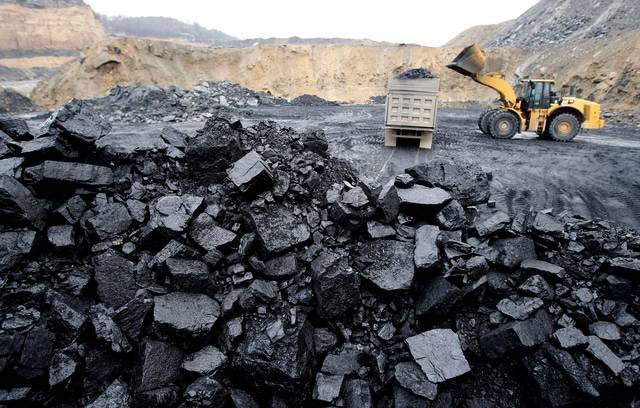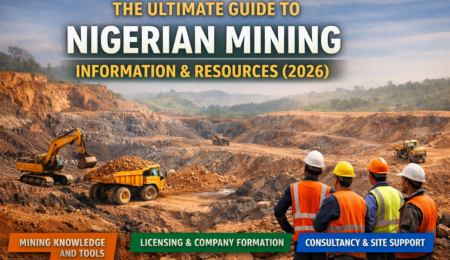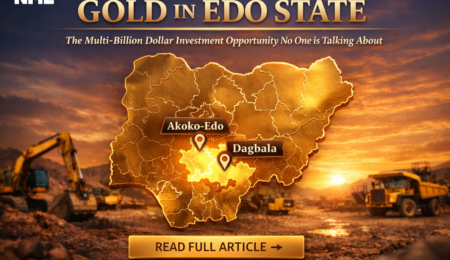Nigeria’s mining sector is experiencing a surge, brimming with the potential to fuel economic growth and development. However, this boom is overshadowed by a significant challenge: overlapping mining licenses. This complex issue threatens not only
investor confidence and project stability but also environmental sustainability and community well-being.
What are Overlapping Mining Licenses?
Imagine a piece of land like a delicious cake. Now, picture multiple people holding knives and forks, each claiming a slice of the same cake. That’s essentially what overlapping licenses are in the Nigerian mining sector. Two or more entities hold
licenses to extract resources from the same geographical area, creating confusion, conflict, and legal disputes.
Many landowners give consent to one company to mine their land only to find out during mining license application that there are existing valid licenses owned by other companies on the same lands without their knowledge. What happened? Who gave the consent? Who approved it? And the confusion continues!
Overlapping mining licenses affects almost every State in Nigeria. In States like Nasarawa, overlapping issues are prevalent and affect almost all Local Government Areas in the State. Many rich sites that supposed to be producing a lot of minerals, wealth and
employment opportunities if mined are entangled in one form of dispute or another due to the problem of overlapping mining licenses.
Causes of the Overlapping Mining License Problem
Several factors contribute to this messy situation:
- Outdated Legislation: Mining laws in Nigeria have not kept pace with the sector’s rapid growth. Ambiguous boundaries, unclear procedures, and loopholes in the legal framework create opportunities for conflicting claims.
- Administrative Inefficiency: Bureaucratic hurdles and delays in processing applications can lead to the issuance of licenses for the same area before previous applications are resolved.
- Inadequate Data Management: Inaccurate or incomplete geological data and maps can lead to confusion about resource deposits and boundaries, increasing the risk of overlap.
- Corruption and Manipulation: Malicious actors may exploit weaknesses in the system to obtain licenses through fraudulent means or exert undue influence on the process. In some cases, the fertile ground for overlapping mining licenses in Nigeria often lies in the tangled thicket of land disputes and the avarice of some traditional rulers.
Imagine ancestral claims crisscrossing like buried fault lines, their ownership contested in generations-old feuds. Enter an exploitative mining company, whispering promises of gold and development in one ear while slipping lucrative “consent fees” into the other. Suddenly, lines blur, boundaries shift, and overlapping licenses fester like open wounds on the land. - Indiscriminate Consent Letters: Greedy chiefs, tempted by short-term gains, readily dole out consent letters, ignoring ancestral rights and fuelling conflicts between communities and companies. This toxic soup of greed and confusion is a potent recipe for the overlapping mess that plagues Nigeria’s mining sector. It’s a reminder that true progress
demands respecting rights, and history, honouring tradition, and ensuring transparency at every step.
Consequences of the Overlap
The consequences of overlapping licenses are far-reaching:
- Investor Hesitancy: The uncertainty surrounding ownership rights discourages foreign investment, hindering the sector’s growth potential.
- Project Delays and Disruptions: Legal battles and arbitration processes can stall mining projects, causing financial losses and missed opportunities.
- Environmental Damage: Uncoordinated extraction practices can lead to overexploitation, land degradation, and pollution, posing significant environmental risks.
- Community Conflicts: Overlapping licenses can fuel tensions between communities and mining companies, leading to protests, disruptions, and violence.
Finding Solutions for a Sustainable Future
Addressing the issue of overlapping mining licenses in the Nigerian Mining Industry requires a multi-pronged approach:
- Legislative Reform: Updating mining laws to clarify procedures, establish efficient dispute resolution mechanisms, and strengthen data management systems is crucial.
- Technological Upgrade: Investing in advanced mapping technologies and digital databases can provide accurate and readily accessible information about resource deposits and license boundaries.
- Administrative Efficiency: Streamlining application processes, reducing bureaucratic hurdles, and promoting transparency can help prevent delays and inconsistencies.
- Stakeholder Engagement: Fostering open communication and collaboration between government agencies, mining companies, local communities, and civil society organizations is essential for finding sustainable solutions.
The Road Ahead
Nigeria’s mining sector has the potential to be a driver of economic diversification, prosperity, and social development. However, overcoming the challenge of overlapping mining licenses is critical to unlocking this potential. By implementing effective solutions, Nigeria can create a stable, transparent, and equitable mining environment that benefits all stakeholders and ensures the sector’s sustainable growth for the future.
Remember, everyone deserves a fair slice of the cake. Let’s work together to ensure that Nigeria’s mining boom benefits everyone, not just a select few.
Navigating the labyrinth of overlapping mining licenses can be daunting, but you don’t have to go it alone. If you’re facing this complex challenge, our team of highly connected experts at the African Trade & Commerce Development Company (ATCDC) is here to help. We have a proven track record of assisting clients in unraveling mining license conflicts, securing clear rights, and ensuring sustainable outcomes.
Whether you’re a miner, investor, community leader, or legal professional, don’t hesitate to reach out for a free consultation. Let’s work together to unlock the true potential of Nigeria’s mining sector, one license at a time. One land, one license. One license, one company. Contact us on WhatsApp: +2348130799304
READ Also:
Need a Mining License or Mineral Trade Permit in Nigeria? Here’s How We Can Help





Leave a Reply